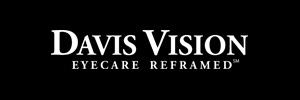Dry eye and seasonal eye allergies are two eye conditions that affect a lot of people. But even though these are common, it can still be difficult to distinguish between the two.

Knowing the difference between these two conditions is important, says Eyes on Norbeck, a trusted provider of personalized eye care and quality eyeglasses. Since dry eye syndrome and seasonal eye allergies require different treatments, you need to be sure of what exactly you are experiencing.
Is It Dry Eye Disease or Seasonal Eye Allergies?
Dry eye disease can occur either due to insufficient production of tears or a condition called Meibomian Gland Dysfunction (MGD). MGD is the result when glands in the eyelids become clogged or when they have problems in producing the oil component of tears.
In some cases, dry eye may simply be an allergy symptom. Other possible reasons for dry eye include wearing contacts for a very long time, eyelid infection (blepharitis) and side effects of medications.
If you’re using your smartphone or laptop for most of the day and you suspect this is the reason for your dry eye, you should go to an eye doctor for a computer vision exam to be sure.
Symptoms of seasonal eye allergies may be similar to those of dry eye, but one distinguishing sign is itchiness. Exposure to allergens such as pollen, dust and smoke can easily cause your eye to itch, redden, dry out, or become watery.
How Are Dry Eye and Seasonal Eye Allergies Treated?
Antihistamines are generally effective in treating seasonal eye allergies. Treatment for dry eye syndrome, on the other hand, may vary depending on its root cause. Experts may give you prescription eye drops or advanced therapies in the case of MGD. But if your dry eye symptoms are mild, you can easily get relief from over-the-counter eye drops or decongestant eye drops. Make sure to visit a professional to ensure you’re getting the right treatment.
If you’re looking for a reliable and trustworthy optometrist, Eyes on Norbeck can provide you with personalized eye care services. Call us at (301) 241-0553 or fill out our contact form to set an appointment. We serve clients in Rockville, MD, and surrounding areas.








